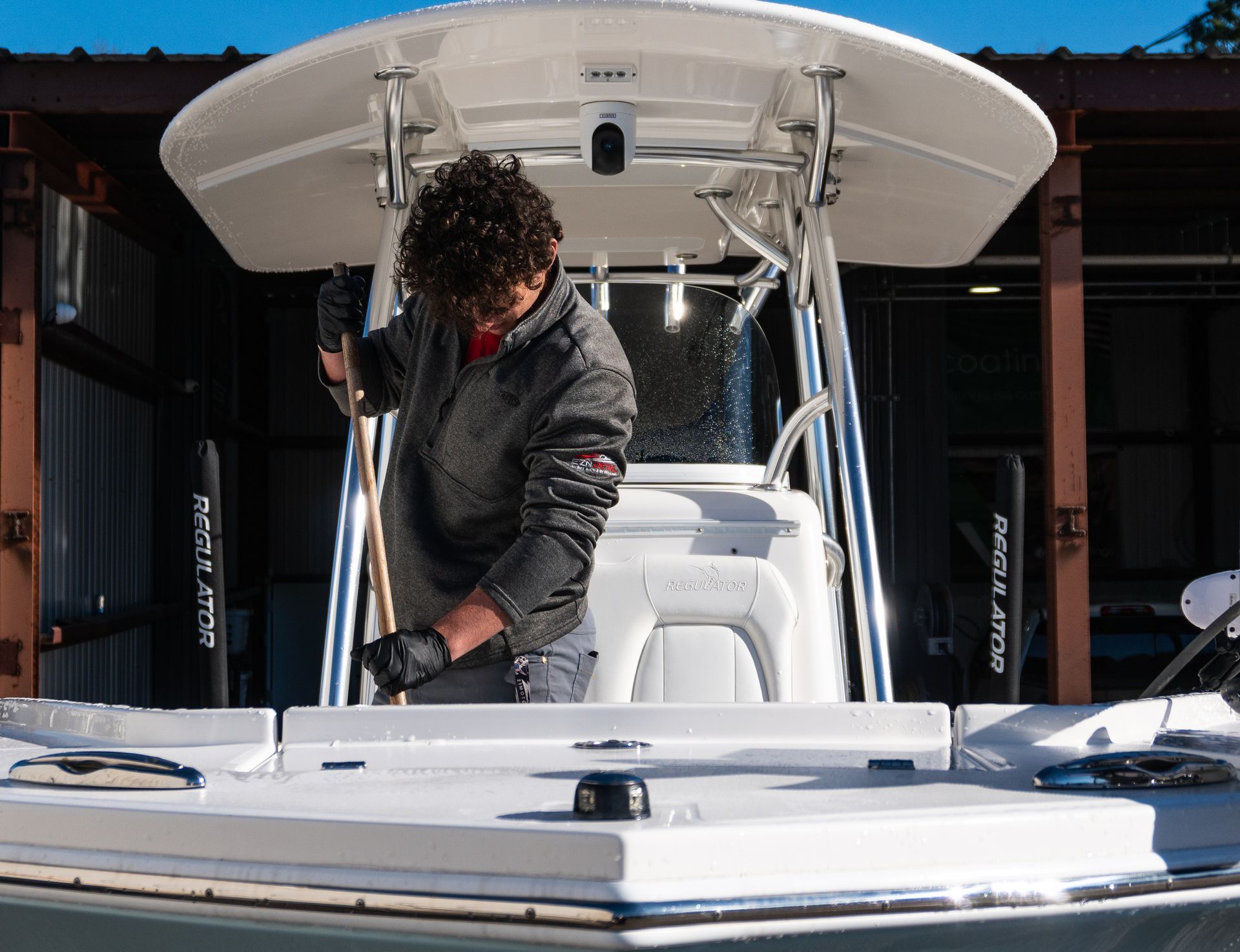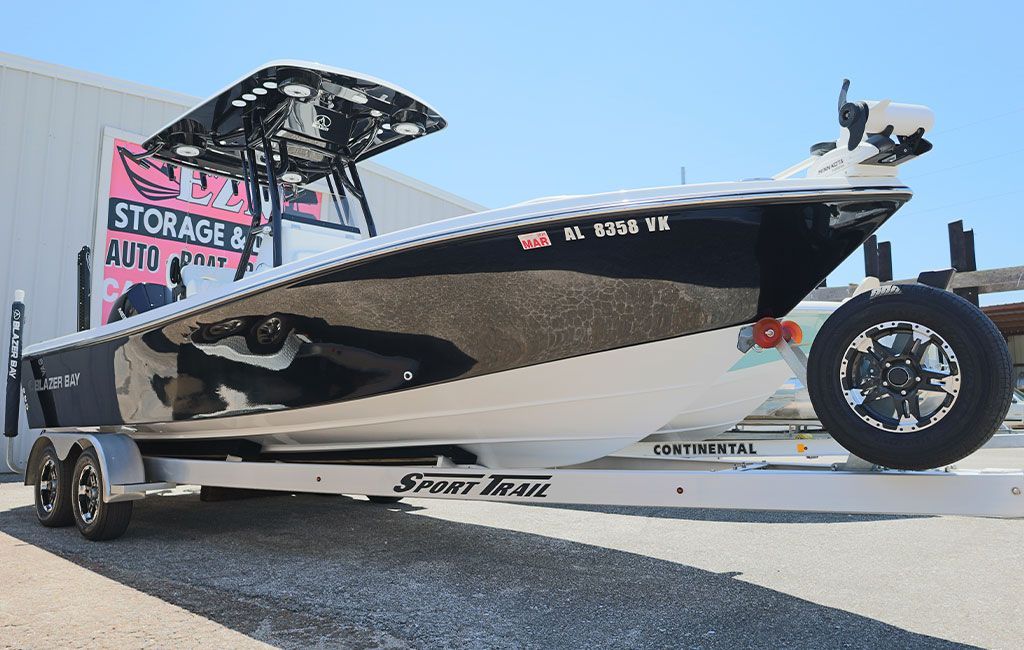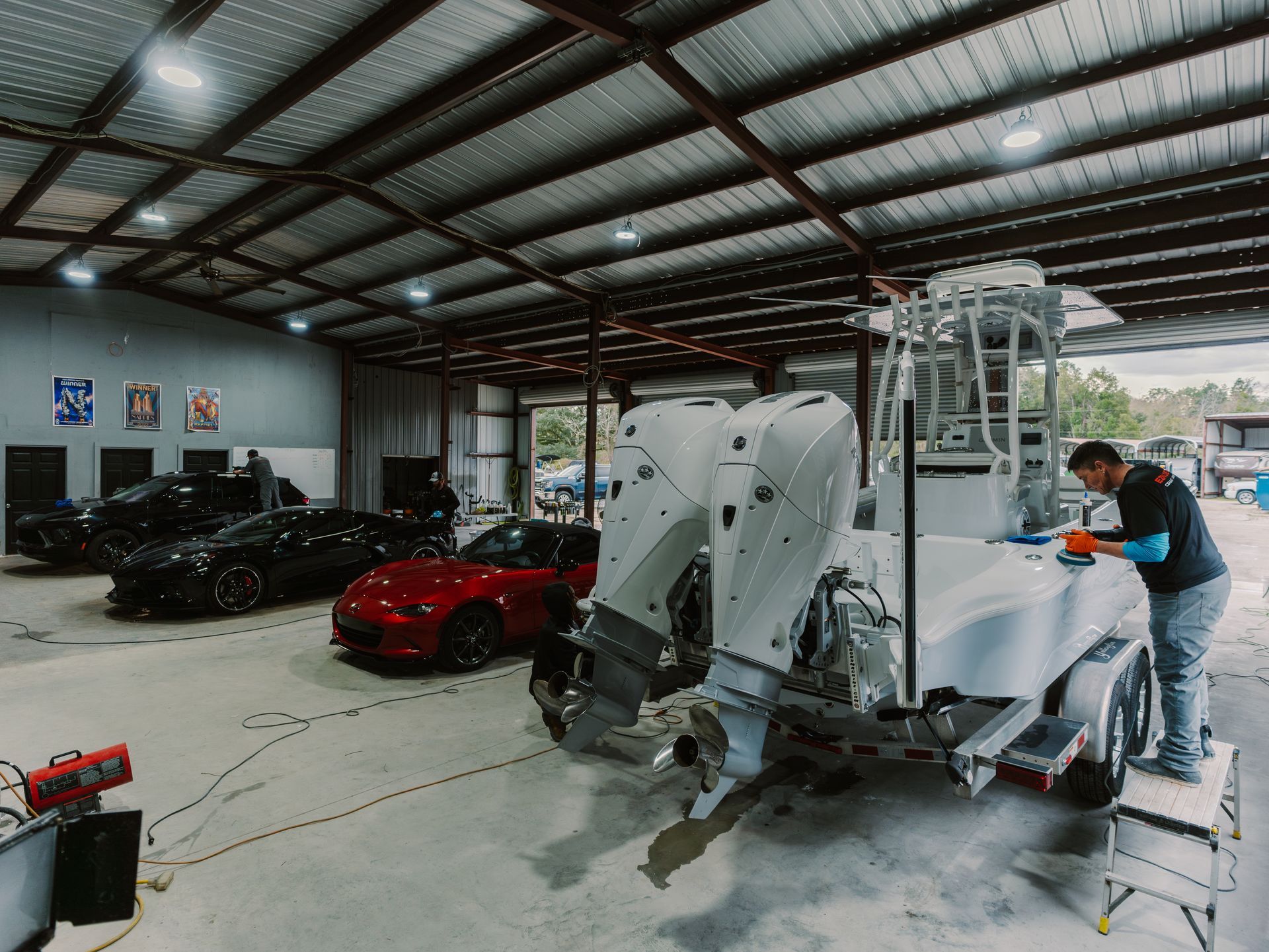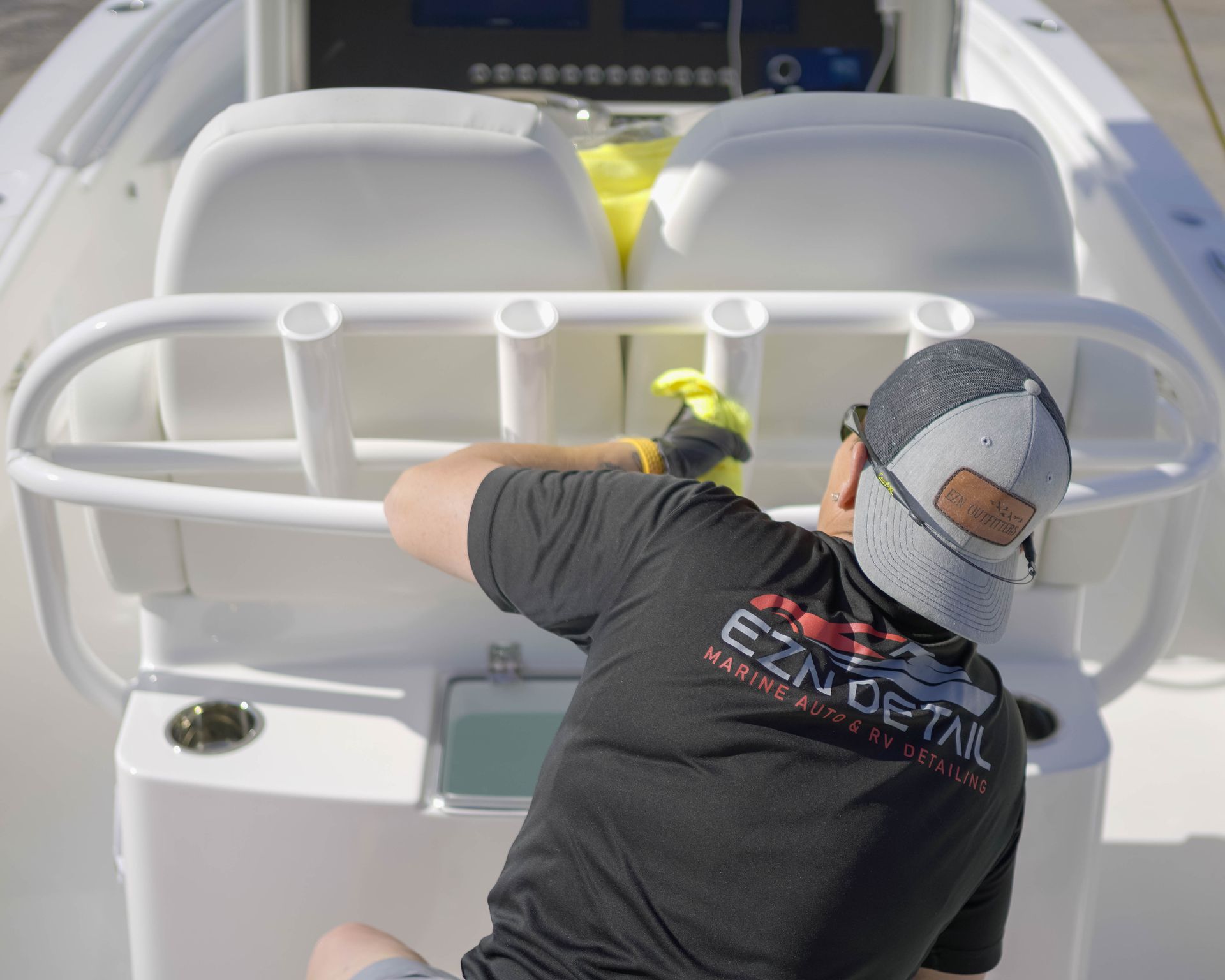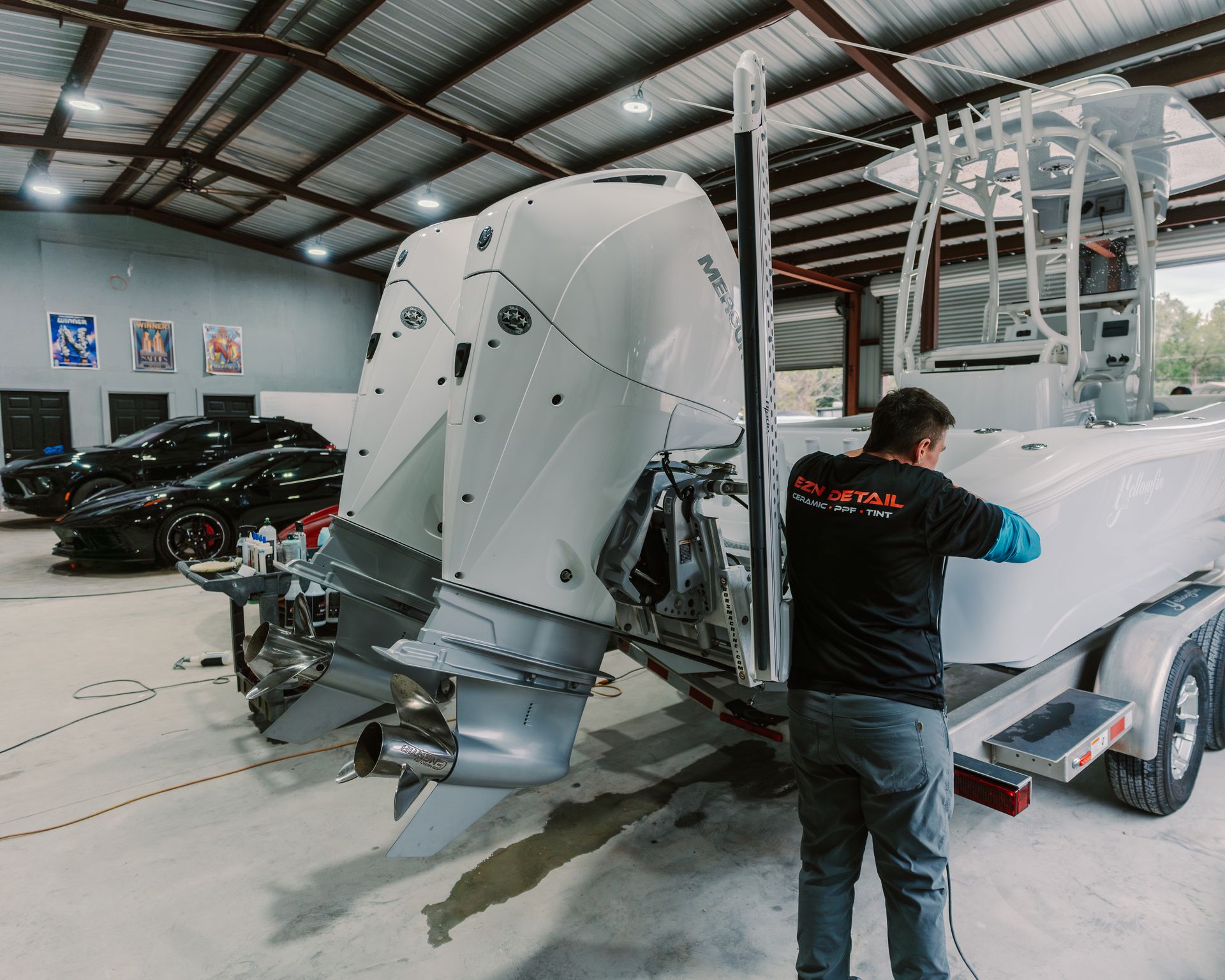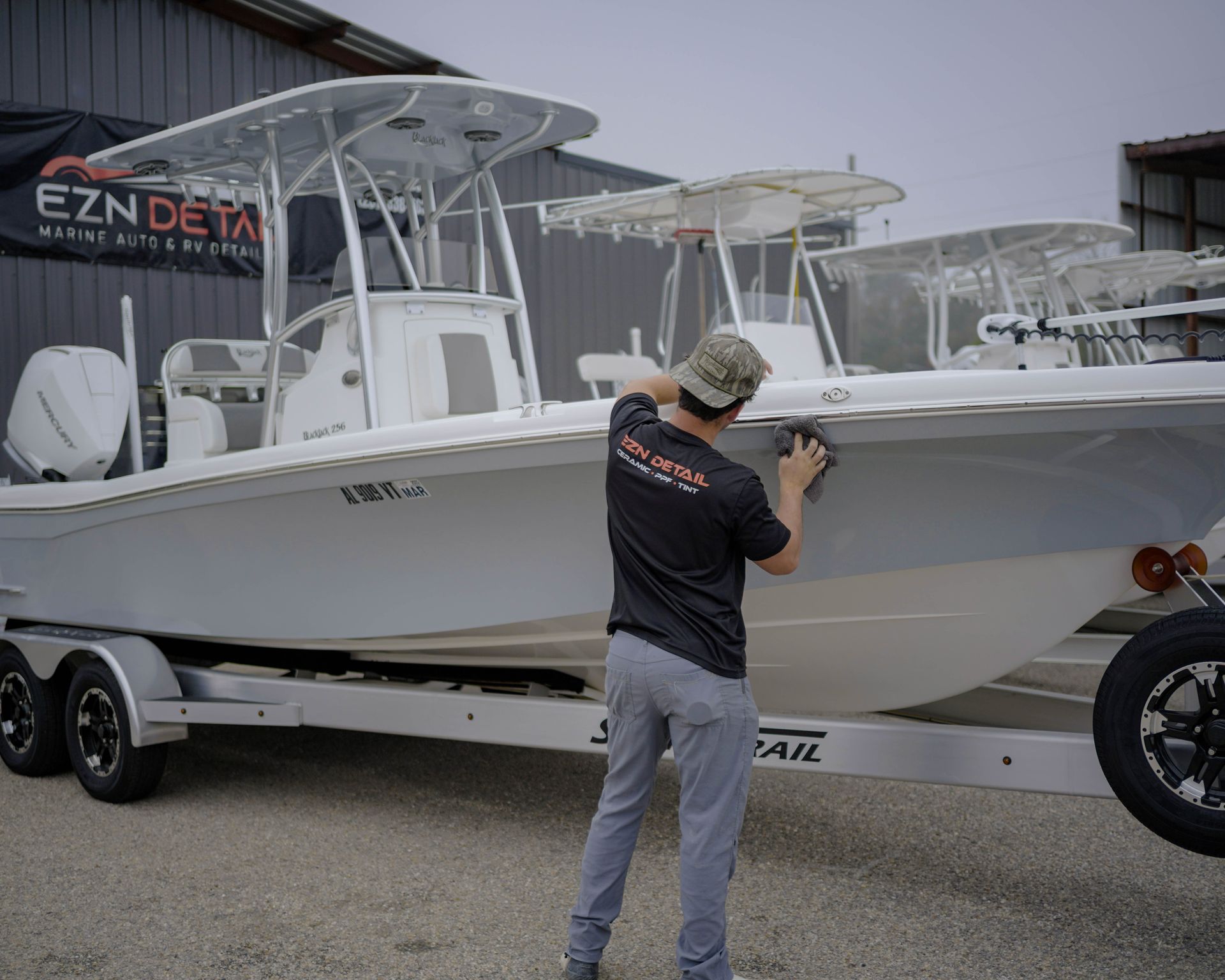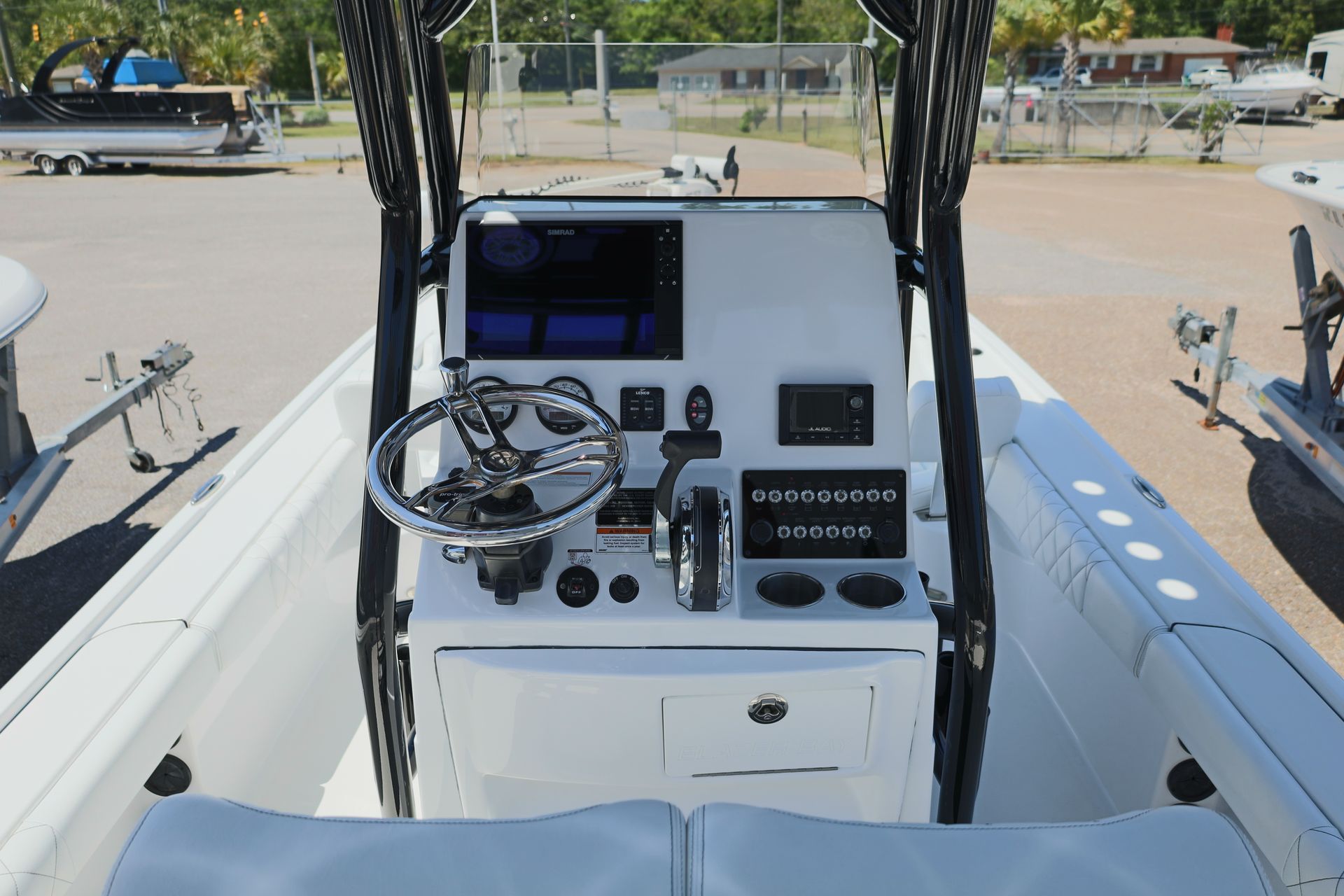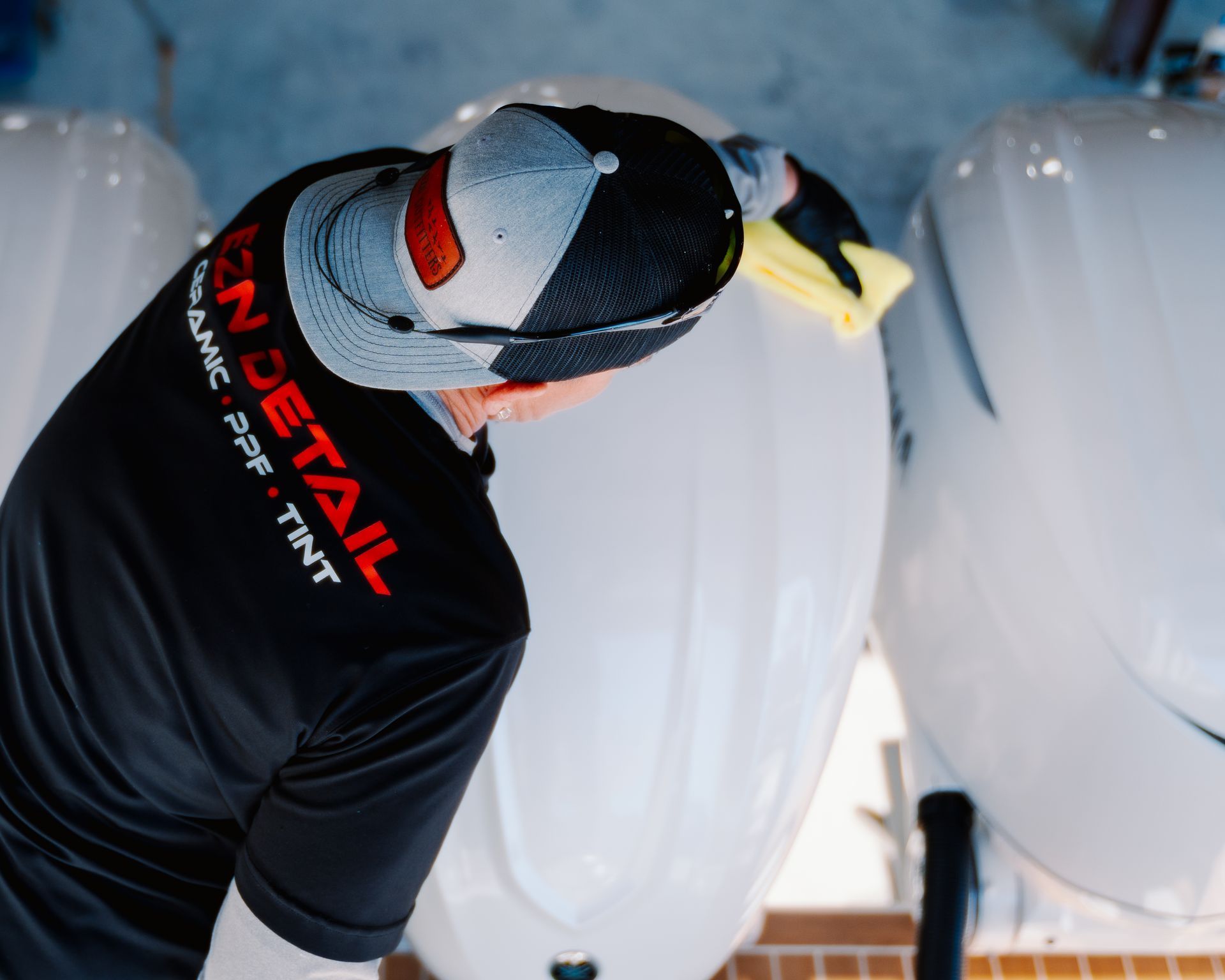Freshwater vs. Saltwater Boat Detailing Needs: What’s the Difference?
GET INSTANT PRICE (251) 338-5637When it comes to boating, keeping your vessel in top shape is crucial, and one aspect that often gets overlooked is the importance of detailing, especially when considering the body of water you navigate. Whether you're cruising on a calm lake or battling waves at sea, your boat faces unique challenges that require tailored cleaning approaches. This article dives into the key differences between freshwater and saltwater boat detailing needs, giving you the insights to protect your investment and ensure your outings are as enjoyable as possible. With some personal experience in caring for both types of boats, I've learned firsthand how much effort is needed to keep them looking great and performing well. Let’s explore what you need to do based on where you take your adventures!
The main differences in cleaning freshwater and saltwater boats come from the types of dirt they deal with; saltwater boats usually get a lot of buildup from salt, algae, and sea life, so they need special cleaning products like soft scrub bleach, while freshwater boats can usually just use regular all-purpose cleaners. Additionally, maintenance practices should adapt to account for issues like corrosion and barnacle growth unique to saltwater environments.
Freshwater vs. Saltwater Boat Detailing Comparison
Freshwater boating offers a more forgiving environment when it comes to keeping your vessel clean. The primary concerns for freshwater boats are generally algae growth and mineral deposits. Using the boat in lakes or rivers, where organic materials flourish, can lead to these issues. Most freshwater-related messes can be effectively cleaned with a good all-purpose cleaner, which also simplifies the task of detailing. Routine cleanings are often sufficient, allowing owners to maintain a clean appearance without too much hassle.
Picture this: after a lovely day on the lake, you’ve returned home with nothing but a few brown splashes of water on your hull and some faint algae on the sides. A quick wash with mild soap will have it sparkling again in no time, and you're back to enjoying your boat in pristine condition for the next outing.
However, transition to saltwater environments brings about very different challenges that demand a deeper level of care and specialization.
Saltwater boats, on the other hand, deal with harsher conditions that necessitate more frequent detailing—ideally every four to six weeks. The salt residue left on surfaces can form corrosive compounds, which lead to severe wear and tear over time. This situation is where stronger cleaning products come into play, such as Soft Scrub Bleach, specifically designed to tackle tough areas like decks and live wells. Many owners find that while initially daunting, regularly using appropriate marine-grade cleaners makes the upkeep manageable.
Plus, saltwater brings along guests such as barnacles and algae—marine organisms that love to cling onto surfaces. If not dealt with promptly, they can become stubbornly attached, affecting both performance and aesthetics. Thus, making regular use of services that include professional hull cleaning by divers can be an effective investment in preserving your vessel's integrity.
As one evaluates these contrasting needs, it's equally important to recognize how these differences extend beyond just cleaning routines.
For example, one noticeable difference also lies in the type of wax used on each vessel—anti-corrosive waxes are essential for saltwater boats due to their exposure to potential damage from salinity and UV radiation. In contrast, freshwater boats often benefit from standard waxes tailored for protective shine but are less concerned about corrosion-related issues.
You might wonder if investing in high-quality marine electronics is critical for freshwater boats since they seldom face exposure to harsher elements. Meanwhile, saltwater vessels would require upgrades to marine-grade electronics capable of enduring constant saline exposure.
Now that we have established the detailing needs and considerations for both environments, we can focus on additional obstacles that are unique to specific water conditions.
Challenges Posed by Freshwater Environments
Freshwater boating can often give the illusion of being less demanding than saltwater boating. However, beneath its calm surface lies a set of challenges that require diligent attention.
One primary struggle is the algae growth that flourishes in freshwater lakes and rivers. With optimal conditions during the warmer months, algae can grow up to 1-2 inches per week, creating a thick green film on your hull if left unattended. This growth not only detracts from your boat's appearance but can also impact performance.
Moreover, freshwater contains various minerals that can result in unsightly stains known as water spots or mineral deposits on your boat’s surface. These stains can form quickly, particularly in areas with hard water, leading to a dull and unattractive hull over time. A simple weekly cleaning routine using standard all-purpose cleaners can help combat these issues, but consider implementing a more thorough deep cleaning session once a month to preserve the boat’s aesthetic appeal and prevent any buildup from becoming a headache down the line.
Keeping up with algae and mineral deposit management is just one part of maintaining cleanliness; a well-planned maintenance schedule enhances overall boat health dramatically.
Maintenance Schedule
Creating a proactive maintenance schedule is vital for any freshwater boat owner. Regular inspections of the hull should be scheduled every couple of weeks, especially during peak summer months when algae growth is rampant. Use soft brushes or sponges to gently scrub away algae, ensuring not to damage the gel coat underneath. The hardest lesson I learned was when I neglected this aspect; missed cleanings led to tougher scrubbing sessions later on due to hardened deposits.
Additionally, it's crucial to monitor interior elements such as air conditioning ducts or live wells, as the presence of organic materials in freshwater can lead to the development of odors and mold. Utilizing specialized antifungal cleaning products in these spaces can keep your boat smelling fresh and looking pristine.
Effective freshwater boat maintenance hinges on understanding these unique challenges and adjusting your strategies accordingly. By scheduling regular cleaning sessions and inspections, you ensure both the longevity and enjoyment of your vessel, making each outing memorable for all the right reasons.
Grasping these maintenance challenges prepares you for the next set of obstacles you'll face as you transition into more corrosive environments.
Addressing Saltwater Corrosion and UV Damage
Corrosion is a silent enemy that demands attention in saltwater environments. The salty air and water can accelerate metal degradation up to ten times faster than in freshwater settings. Boat owners need to be vigilant, performing frequent inspections and maintaining their vessels more diligently. It's not just about avoiding rust; the integrity of critical components hinges on proactive care.
For example, regularly checking engine parts, brackets, and through-hull fittings for signs of corrosion is vital. Any overlooked areas can quickly lead to failure under stress or prolonged exposure.
One effective way to combat corrosion is through smart engineering choices and regular applications of protective products. Applying anti-corrosive sprays specifically designed for marine use can create a barrier between metal surfaces and the corrosive salt. Start by treating exposed metal parts like engine components or propellers that come into contact with water. Additionally, using a marine-grade wax can provide another layer of protection that keeps the boat looking sharp while thwarting ongoing deterioration.
Combatting UV Damage
UV rays impact boating conditions just as saltwater does. Long exposures can degrade gel coats, potentially stripping them of up to 50% of their protective qualities within two years if left unprotected. This highlights why using specialized UV-protective wax or varnish is essential for shielding your paintwork and preventing oxidation. It’s almost like putting sunscreen on your boat! Look for high-quality products that contain UV blockers specifically crafted for marine surfaces.
After each trip into saltwater, it's wise to rinse your vessel thoroughly with fresh water; this simple act minimizes salt and grime buildup that contributes to corrosion and hastens surface degradation from UV exposure.
As challenges differ, so do care techniques; let’s explore various methods that significantly contribute to maintaining your boat’s integrity in harsh conditions.
Interior Maintenance Tips for Both Water Types
When it comes to keeping the interior of your boat in top condition, understanding the specific challenges posed by both freshwater and saltwater environments is essential.
For freshwater conditions, moisture can easily build up and lead to mold and mildew if left unchecked. Therefore, regularly vacuuming carpets and upholstery is vital. By doing so, you prevent the unwanted growth of mold that thrives in humid environments—something I’ve encountered firsthand after neglecting routine cleaning. A simple pass with a vacuum can save you hours of scrubbing later.
However, if you're operating in a saltier environment, the maintenance routine shifts significantly.
Salt residue taints the beautiful ocean views in saltwater settings. This buildup can be harmful to both surfaces and air quality inside your boat. That's why it's crucial to wipe down all interior surfaces with a damp cloth after each outing. Not only does this remove unsightly deposits, it also helps maintain a pleasant atmosphere onboard. Additionally, placing moisture absorbers around the cabin can keep humidity levels down, ensuring that your space stays fresh and free from musty odors—a lesson learned after facing rather uncomfortable sailings due to unpleasant smells.
Speaking of potential issues, let's address the electrical components.
Saltwater is particularly harsh on electronics—it seems to find its way into every crevice it can. To prevent damage, ensure all interior electronic components are marine-grade or adequately sealed against moisture. This step extends their lifespan and avoids headaches down the line. Regular checks on these components, often overlooked, can make the difference between a seamless experience on the water and potential frustrations that could ruin your trip.
Once you've ensured all aspects of your interior are clean and secure, it becomes much easier to enjoy those moments spent on the water.
Maintaining an organized and inviting interior isn’t just for looks; it enhances the entire boating experience. Whether you're entertaining friends or simply relaxing after a long day on the waves, knowing that you've covered all bases in upkeep allows you to fully immerse yourself in the moment without worrying about what waits when you return home.
Why Choose EZN Storage and Detail for Your Boat Detailing Needs
After investigating the complex differences between freshwater and saltwater boat detailing requirements, it becomes clear that proper maintenance demands both expertise and dedication. This is where EZN Storage and Detail stands out as your premier partner in marine care, offering specialized services that address the unique challenges faced by both freshwater and saltwater boat owners.
Expert Knowledge of Water-Specific Challenges
Our team at EZN Storage and Detail recognizes that a uniform approach is ineffective when it comes to boat detailing. Whether your vessel navigates the gentle waters of Alabama's lakes or ventures into the Gulf of Mexico's saltwater environment, we tailor our services to meet the specific demands of your boating conditions. Our technicians are trained to recognize the telltale signs of saltwater corrosion, UV damage, algae buildup, and mineral deposits, ensuring that every aspect of your boat receives the attention it deserves.
Comprehensive Service Packages
From routine maintenance schedules for freshwater boats to intensive saltwater restoration services, EZN Storage and Detail offers comprehensive packages designed to keep your vessel in peak condition year-round. Our services include hull cleaning, interior detailing, corrosion prevention treatments, and protective wax applications—all performed by experienced professionals who understand the Gulf Coast's unique marine environment.
Convenient Storage Solutions
Beyond detailing services, EZN Storage provides secure boat storage facilities that protect your investment when it's not in use. Our climate-controlled storage options help prevent the moisture-related issues that can plague both freshwater and saltwater boats during off-seasons, while our convenient location makes it easy to schedule regular maintenance visits.
Local Expertise You Can Trust
As a locally owned business serving the Gulf Coast community, EZN Storage and Detail brings invaluable regional expertise to every job. We understand the specific challenges posed by Alabama's varied water conditions, from the freshwater lakes inland to the saltwater environments along our beautiful coastline. This local knowledge, combined with our commitment to customer satisfaction, ensures that your boat receives care that's perfectly suited to our unique marine environment.
Don't let the complexities of freshwater versus saltwater maintenance overwhelm you. Whether you're dealing with stubborn algae growth, persistent salt deposits, or simply want to maintain that showroom shine, EZN Storage and Detail has the expertise, equipment, and dedication to keep your vessel looking and performing its best.
For personalized services and expert advice on maintaining your boat, don't hesitate to reach out to us through our contact page:
EZN Storage and Detail. Call us at (251) 338-5637 today and discover how professional boat detailing can enhance your boating experience while protecting your valuable investment for years to come!

